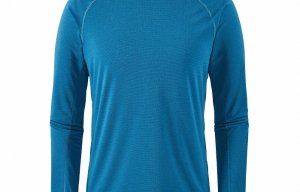
HeiQ and Patagonia expand their partnership
The University of Manchester and Beyond Surface Technologies AG have joined forces in the development of sustainable technologies for textiles. The two organisations have come together to provide alternatives to fossil-based raw materials currently used in textile processing.

22nd August 2012
Innovation in Textiles
|
Manchester
The two organisations have come together to provide alternatives to fossil-based raw materials currently used in textile processing.
“Our aim is to help meet changing needs and improve sustainability in the textile industry,” explains Matthias Foessel, Managing Director of Beyond Surface Technologies.
Professor Chris Carr and Dr Muriel Rigout, School of Materials at The University of Manchester said: “Here at The University of Manchester we are developing innovative technologies that emphasise the use of renewable raw materials as well as biochemical technologies and Beyond Surface Technology is a dynamic company ideally placed to bring these to market.”
One of the initial projects is the replacement of formaldehyde-based glyoxal resins, which are widely used in easy-care finishing of cotton shirt and trouser fabrics. Beyond Surface Technologies, working through The University of Manchester’s IP commercialisation arm (UMIP), has entered into a licence agreement with the University in order to commercialise the formaldehyde-free finishing technology for easy care cotton.
Both The University of Manchester and Beyond Surface Technologies believe that this novel approach, based on sustainable biochemistry, will ultimately revolutionise easy-care finishing technology and replace conventional chemistries.
“This rapidly advancing development can benefit the entire textile value chain, from raw material to consumer,” concludes Matthias Foessel.
“The new technology will help both to enhance the environmental compatibility of textile processing and to eliminate concerns about the potential health hazards associated with formaldehyde.”
The University of Manchester, a member of the Russell Group, has 20 academic schools and hundreds of specialist research groups undertaking pioneering multi-disciplinary teaching and research of worldwide significance. According to the results of the 2008 Research Assessment Exercise, the university is one of the country’s major research institutions, rated third in the UK in terms of ‘research power’. It had an annual income of £809 million in 2010-11.

Business intelligence for the fibre, textiles and apparel industries: technologies, innovations, markets, investments, trade policy, sourcing, strategy...
Find out more